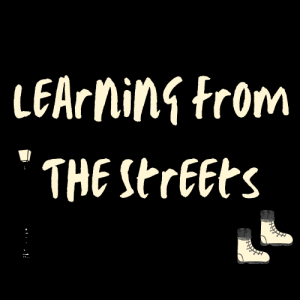Apart from ones that are in contact with youthworkers, know one or have been helped by one – most young people get on fine in life without one.
For one thing now, most young people have the internet. And thats where they can message people like Childline if they need to contact someone, or the Samaritans. They can contact services for mental health, eating disorders and depression, housing, budgetting and careeers, all on the internet.
Also, young people are doing so well at school, all of them are. Look at this weeks results, or last years. Or university intake levels. That just down to the teachers (if you believe the news). There would never have been any youthworkers in that school, or community over the last few years, oh no.
Young people statistically are drinking less, because they have to do better at school, because there is more pressure to go to university, because of lack of jobs and austerity. So good old austerity it means less young people are drinking alcohol, or getting caught drinking alcohol. And good old austerity too this means young people are consequently doing better at school.
If young people are doing so well at school, and have access to all the help in the world, via the click of a button, then theres no need to pay for a luxury that is a youthworker in a local community.
Because less young people are drinking, thus no young people are drinking? or because grades and university entrants are increasing (despite the reduction in grants- especially for the less well off) – then is every young person going to university, and coping well in school?
Young people dont need a youthworker, because as long as they have the confidence to contact a stranger in a call centre acting on behalf of a national charity, theyll be ok, for everything else just speak to a teacher or a parent.
Its lucky actually that young people can rely on their teachers and parents, and no one else. They cant need mental health services either, otherwise the government would be keeping the funding for them too. They cant need houses or services beyond the care age of 16, or housing benefit, or education maintenance allowance, or a decent minimum wage, otherwise the government would make sure that they could get them if they needed to. Young people in Rotherham had youthworkers, youthworkers who listened, but because the system didnt validate the voice of the youthworkers nothing was done. But no, young people dont need youthworkers, they cant do. they have so many people who are already acting for them, just for the interests of them who are wholly trustworthy, wholly reliable, and wholly going to listen to them. You can tell that because young people cant accept that thats what a youthworker would actually do, without needing something in return.
Its funny that when the local government pulled the youthworkers in areas, the government have pulled services for young people, and thus ergo, young people dont even have the people who might listen and fight for them anymore. Or give them advice to cope within the cuts they have to deal with, but no, neither these, nor any young people need youthworkers anymore.
Young people dont drink anymore- not just because of austerity, but because of law enforcement and bye laws restricting it, because of better education. And because its expensive compared to legal highs, who might be aware of this? However, the young people who are still drinking, they’re drinking more. It’ll only be the people young people will trust, usually people who’ll listen and not judge (often youth workers) who young people will be in contact with who theyll tell why they drink. Young people from the wealthier areas of Durham are struggling with mental health issues, and who are part of the diagnosis and the solution?
Its ok, because the load will fall on teachers. Who arent under pressure. Who are regularly told by the education secretary that they are to focus on the vulnerable young people, on providing pastoral support, on meeting young peoples needs. On trying a variety of methods to keep challenging young people in the school.
Its not looking that good for the young person, but hey, they never had it so good, not as good as us? Maybe not in the little things, like technology, but the system they’re growing up in is not in their favour. Its still in ours, in our parents. Especially when it comes to political decisions, pensions, taxes, house prices, jobs, benefits.
Maybe its better that the government doesnt fund youthwork anyway – its been argued many times that its seems a contradistinction that a service that might enable critical action of the government by local young people might actually be paid by them. Probably best to leave such a whistleblowing, annoying little voice in the corner to shut up. Disperse the profession into voluntary groups and agencies, into churches, charities and companies. That’ll dissolve their power. And keep them so busy trying to maintain sustainablilty from funding that they cant really take on anything other that what funders suggest that Government tell them to – such as employability, sports & fitness or lifeskills. No collaborative voice, barely a union, no funding.
But no, the government must be right, young people just dont need youthworkers anymore. 11 years ago when i started in youthwork i found it difficult, especially in some circles to see young people as oppressed, Now there is no doubt that they are being disproportionately penalised & unsupported. Maybe its just the government that have no need for youthworkers anymore, and paradoxically young people have even more need than they have ever done.









